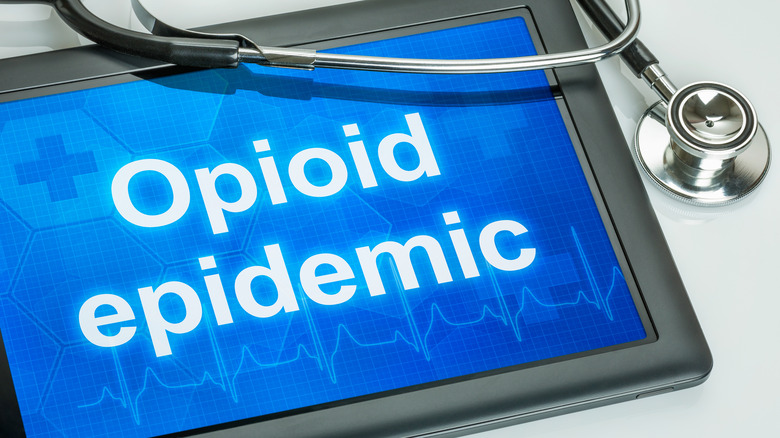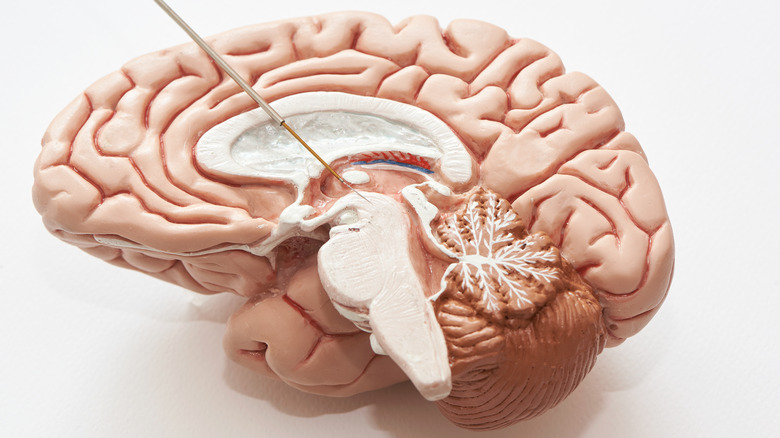How Deep Brain Stimulation Is Helping Tackle The Opioid Crisis
The opioid crisis in the U.S. has been labeled a health emergency for good reason. The National Center for Drug Abuse Statistics reports that 136 people in the U.S. die every day because of a drug overdose, and over 10 million Americans abuse opioids every year. Treatment for opioid addiction includes certain medications and behavioral therapy, and while these may work for some, they don't for others, per the Centers for Disease Control and Prevention. According to a 2017 comparative study published in the Indian Journal of Psychological Medicine, the majority of those who quit opioids relapse within one year.
However, an emerging new treatment offers some hope, and it is called deep brain stimulation (DBS). DBS involves placing electrodes in the brain that stimulate certain areas with impulses. The electrodes, which are attached to wires placed under the skin, are controlled by a device on the chest that is also under the skin. According to the Mayo Clinic, DBS is used to help treat Parkinson's disease, epilepsy, OCD, and neurological disorders. Researchers now hope that it can be used to treat opioid addiction when other methods fail.
DBS has been successful in some patients
Doctors have developed a way to attach the electrodes to the reward center of the brain and have observed success with DBS. NBC News reports that two patients, James Fisher and Gerod Buckhalter, both experienced immediate relief from opioid cravings — in addition to relief from depression, anxiety, and irritability — after the devices were implanted and turned on. Fisher, 36, who experienced four almost fatal overdoses as an addict, welcomed this new treatment as a participant in a clinical trial. Two months after the implant, he had not used drugs, and, even better, he had no cravings to do so. Buckhalter, 35, had been addicted to painkillers since he was 15, and he has been sober for two years since receiving the DBS treatment.
While DBS might work for some, it is still too early to know how it will affect everyone. NBC News reports it could be years before DBS is used as a cure for opioid addiction. Part of the reason why is because researchers still have more to learn about how the brain works in relation to cravings and relapse, which may involve a personalized approach.
If you or anyone you know is struggling with addiction issues, help is available. Visit the Substance Abuse and Mental Health Services Administration website or contact SAMHSA's National Helpline at 1-800-662-HELP (4357).


